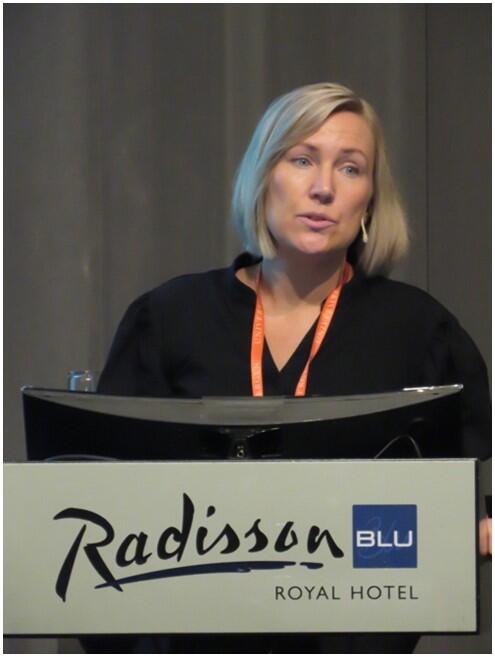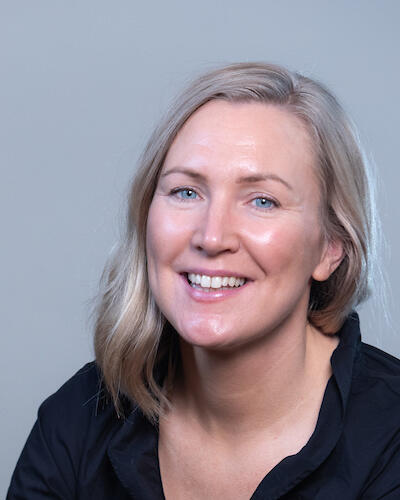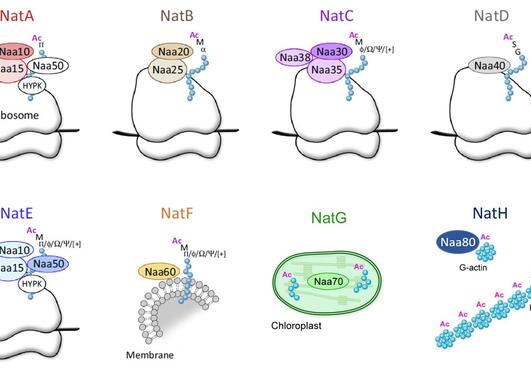Shedding new light on brain calcification
Brain calcification can cause movement disorders and cognitive impairment. New research by the Arnesen Lab at UiB provides increased insight into how these calcifications occur.

Main content
"Calcifications are often associated with disease states in joints or blood vessels, but actually it is also very common in the brain. Brain calcification is however less well studied", says researcher at the Department of Biomedicine, Henriette Aksnes.
She and several others in the Arnesen lab have taken a closer look at a specific type of brain calcification, called primary familial brain calcification (PFBC, formerly called Fahr's disease). In this rare neurodegenerative condition, progressive muscular symptoms, psychiatric symptoms and cognitive impairment occur:
"This condition is caused by pathogenic, meaning disease-causing, gene variants and entail particularly severe brain calcification", says Aksnes.
New gene linked to brain calcification
PFBC can be caused by mutations in various genes, and researchers are working to find out which ones. Now, through an international collaboration, the research group at UiB has participated in the discovery of a new gene that can be linked to this disease.
The Arnesen Lab has expertise in the novel PFBC gene, NAA60, such as through the doctoral and postdoctoral work of Henriette Aksnes.
"PFBC is a very favorable model for studying brain calcifications", she explains.
Among those with a PFBC diagnosis, errors are found in various genes. There were six genes linked to the disease before the research group's work.
"Since defects in different genes cause the same disease, this indicates which molecular players are involved in the calcification process", Aksnes explains.
"By adding NAA60 to the list as the seventh gene that can cause PFBC, and linking this with our previous work, we have made a big step towards being able to explain how calcification can develop in the brain", she continues.
Large international collaboration
The first NAA60-PFBC family was identified at University College London (UCL) by neuro- geneticists Viorica Chelban and Henry Houlden.
"During the last years, a large international clinical collaboration, organized by Chelban at UCL, described a total of six different NAA60 mutations, found in ten individuals from seven families, now presented in this article", says Aksnes.
The team in Bergen contributed their expertise on the NAA60 protein and showed that the mutations found in these patients render NAA60 with reduced capacity to perform its normal functions. This important finding was shared with the scientific community at the EMBO conference organized by the research community in Bergen summer 2022.
Since half of those currently diagnosed with PFBC do not have a genetic explanation, it is assumed that NAA60 may be behind additional cases. The work has now been published in the scientific journal Nature Communications.
NAA60 neuropathology - a door opener for a new research team
"The recently published article presents the new gene link and shows that the mutations cause loss of NAA60 function", says Aksnes.
The loss of function manifests itself in a lack of the NAA60 protein that is normally expressed through the gene.
" But there is still a lot of work to be done to understand the molecular processes that can explain how a lack of the NAA60 protein leads to brain disease", says the researcher.
She has been awarded a TMF starting grant to continue this exciting work as PI of a new research team.
"The work we will now undertake will be very important to better understand brain calcifications and how they are connected to dementia", she says.
The UiB researchers' work for this article was supported by funding from the European Research Council, the Norwegian Research Council and the Meltzer Foundation.
Link to the research article: https://www.nature.com/articles/s41467-024-46354-0


